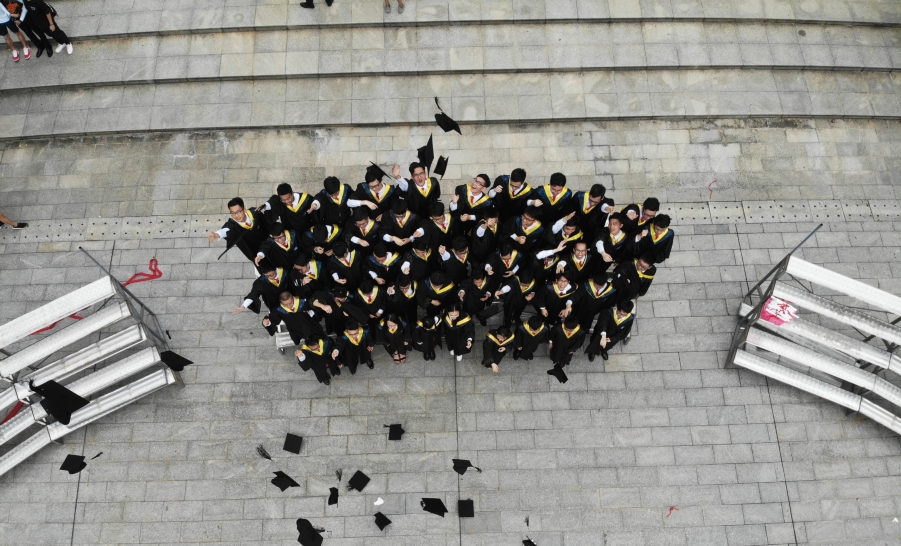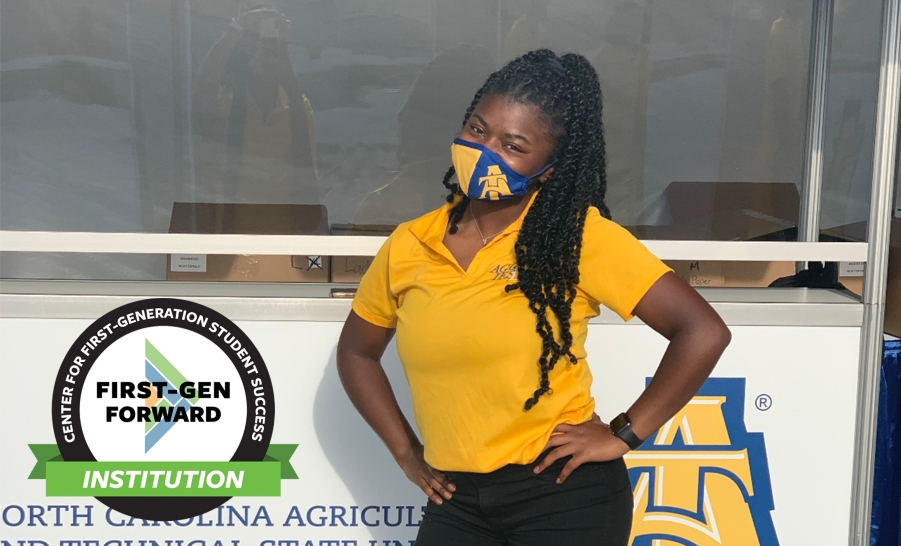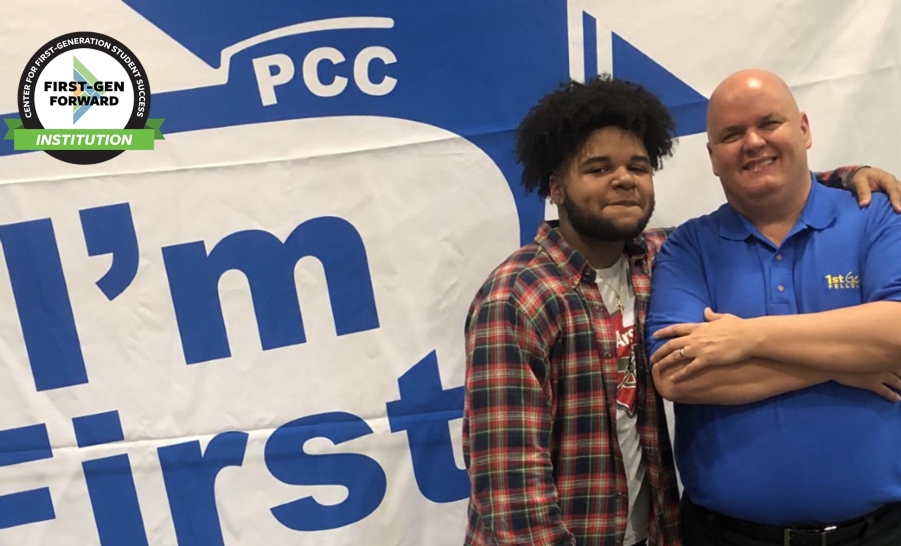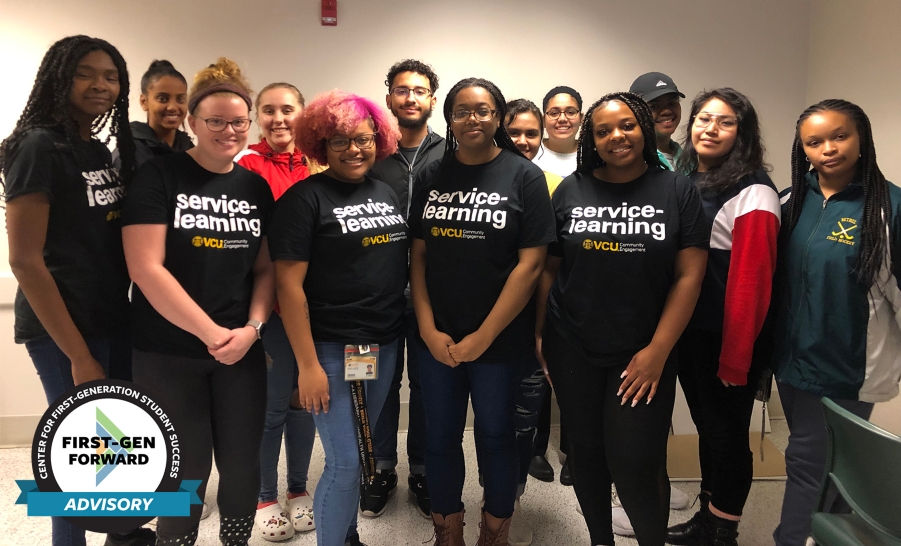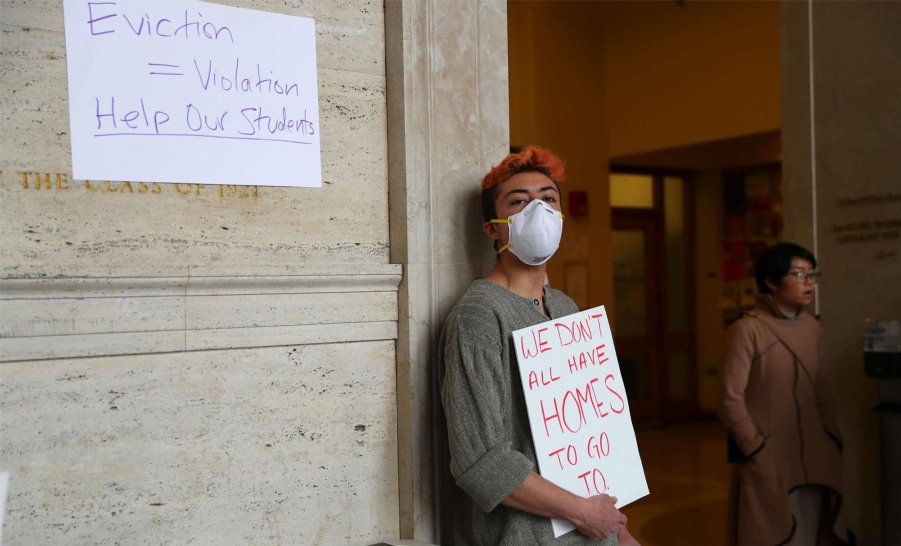Combining History & Data to Drive First-generation Student Success
Kristian Wiles M.A., University of Washington / The Center / February 10, 2020
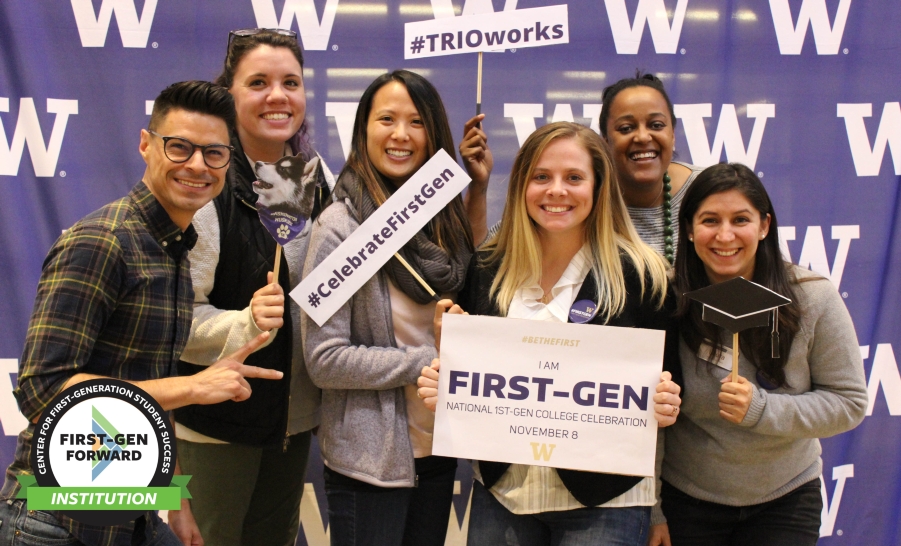
The inaugural First-gen Forward cohort includes a vast cross-section of institutions with unique approaches to first-generation student success. The cohort includes campuses that house first-generation student centers while others feature TRIO or TRIO-modeled programs as central to their efforts. Some have been actively and effectively supporting first-generation students since the term was first coined in the reauthorization of the Higher Education Act (HEA) of 1980, and many more have developed efforts since. Regardless of differences across the cohort, all 80 institutions share one thing in common. Each can point to achievements made supporting first-generation students and are simultaneously striving to grow efforts, further scale, and increase student success.
The University of Washington (UW) is no different. The UW Seattle campus has held steady at approximately 30% of its 30,000 undergraduate students identifying as first-generation. UW has 50+ years of success serving a significant number of these students through TRIO, the Educational Opportunity Program (EOP), and STEM/Pre-Health pathway initiatives in the Office of Minority Affairs & Diversity (OMA&D). However, improving but persistent gaps remain in degree completion for first-generation students compared to their peers and students not affiliated with first-generation focused programs in OMA&D often feel overwhelmed, lost, or not welcome.
UW Undergraduate Academic Affairs (UAA) provides centralized pre-major advising for the majority of undergraduate students on campus. Recently their student services unit engaged in a study to learn more about the experience of first-generation students not served by programs like EOP and TRIO. The study included campus data, student data, and focus groups. Analysis of data collected demonstrates that this particular subset of students faces similar challenges compared to first-generation UW students overall. Focus groups provided some of the most interesting information.
- Respondents reported that staff and faculty often assume students know things that they do not. This included terminology, processes, and general information.
- Students shared that they were referred back and forth to multiple offices as a result of these assumptions. This left students feeling confused and frustrated, as a result increasing the time spent resolving various issues.
- Students reported that campus messaging, particularly from advising, to develop “back up major” pathway plans came across as people not believing they would be successful pursuing competitive degrees. Many students expressed self-doubt.
- One important difference for focus group participants compared to students affiliated with TRIO and EOP is that respondents said they did not feel “seen” and felt like staff and faculty assume they are not first-generation.
The UW First-gen Forward team is looking to improve the student experience by using all of this information, building out and sustaining more tailored support for first-generation students. Currently, at orientation and welcome events, UAA has intentionally celebrated the first-generation identity with breakout sessions for students and parents, affinity group meet-up events, and identity items. They also plan to create more meet-up groups, provide targeted communication to students who opt-in, and continue refining online learning modules. In advising, UAA is working closely with first-generation focused programs to revise common experiences for pre-major first-generation students and to scale successful activities that TRIO, EOP, and other programs implement.
The momentum of the National First-Generation College Celebration and participation in the First-gen Forward inaugural cohort has focused collaboration between units in OMA&D, UAA, and beyond. The UW First-gen Forward team is excited to engage in continuous improvement activities that positively impact outcomes for first-generation students while collecting experience and outcome data to track progress and identify where to focus precious resources.
To learn more about UW’s approach visit https://www.washington.edu/omad/ and https://www.washington.edu/uaa/.
